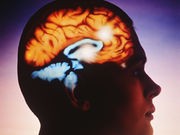

A new British study suggests that attention-deficient hyperactivity disorder (ADHD) may often develop in the young adult years.
Researchers at Kings College London looked at long-term data from 2,200 British twins. They found that close to 70 percent of those diagnosed with ADHD as young adults did not have the disorder when they were children.
People with this “late-onset” ADHD also tended to have high levels of symptoms, impairment and other mental health disorders, according to the study.
A Brazilian study in the same issue of the journal also found that a large percentage of adults with ADHD did not have the condition in childhood, and the British and Brazilian studies support the findings of a prior New Zealand study.
“Our research sheds new light on the development and onset of ADHD, but it also brings up many questions about ADHD that arises after childhood,” study author Louise Arseneault said in a news release from Kings College London.
“How similar or different is ‘late-onset’ ADHD compared with ADHD that begins in childhood? How and why does late-onset ADHD arise? What treatments are most effective for late-onset ADHD? These are the questions we should now be seeking to answer,” said Arseneault. She works at the college’s Institute of Psychiatry, Psychology & Neuroscience.
One mental health expert said the study might offer important new insights into ADHD.
“In the medical field, adult ADHD is widely considered a continuation of childhood ADHD that persists into adulthood, or a diagnosis that was missed in childhood but picked up in adulthood,” said Dr. Matthew Lorber.
“This study calls both of those assumptions into question,” said Lorber, who directs child and adolescent psychology at Lenox Hill Hospital in New York City.
“What is important to consider is that there may be a neurodevelopmental disorder presenting as ADHD in late age that we did not know about,” he said. “More studies need to be done looking into this subset, as well as examining if our traditional ADHD treatments will be effective for this older ADHD-like group.”
However, another expert was more skeptical of the new study results.
“I would be surprised if follow-up studies with more rigorous designs confirm these findings,” said Matthew Rouse, a psychologist at the Child Mind Institute’s ADHD and Behavior Disorders Center, in New York City. “Mental health disorders have a heavy biological influence, so there are few that don’t show up in some way in childhood.”
However, study co-author Jessica Agnew-Blais believes that, in some cases, ADHD may not manifest until adulthood.
“It is crucial that we take a developmental approach to understanding ADHD, and that the absence of a childhood diagnosis should not prevent adults with ADHD from receiving clinical attention,” she said.
The study appears online May 18 in the journal JAMA Psychiatry.
More information
The U.S. National Institute of Mental Health has more about ADHD.
Source: HealthDay
Copyright © 2025 HealthDay. All rights reserved.

Leave a Reply